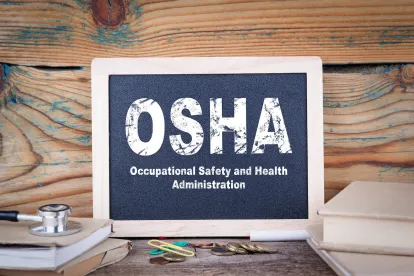After at least 34 lawsuits were filed nationwide seeking to permanently stay or rule unconstitutional the Emergency Temporary Standard (ETS) announced by the U.S. Occupational Safety and Health Administration (OSHA), which would have required that employers with 100 or more employees ensure their workers are fully vaccinated or test at least weekly for COVID-19, OSHA announced November 18, 2021 that it would stay enforcement of the ETS pending court review. The Sixth Circuit Court of Appeals was drawn in a lottery to hear and resolve all matters related to these now-consolidated challenges to the ETS. Announcing its abrupt change in direction, OSHA posted the following comment on its COVID-19 related webpage:
On November 12, 2021, the U.S. Court of Appeals for the Fifth Circuit granted a motion to stay OSHA’s COVID-19 Vaccination and Testing Emergency Temporary Standard, published on November 5, 2021 (86 Fed. Reg. 61402) (“ETS”). The court ordered that OSHA “take no steps to implement or enforce” the ETS “until further court order.” While OSHA remains confident in its authority to protect workers in emergencies, OSHA has suspended activities related to the implementation and enforcement of the ETS pending future developments in the litigation.
Although U.S. employers of all sizes may continue to implement mandatory or voluntary vaccination programs and testing processes as a matter of company policy and workplace safety measures, OSHA’s announcement grants breathing room to employers that were scrambling to meet rapidly approaching compliance deadlines even as litigation threatened the ETS itself, fearing potentially six-figure penalties for noncompliance.
The announcement does not affect implementation of the President’s Executive Order governing federal contractors or the Interim Rule announced by the Centers for Medicare and Medicaid Services (CMS) applicable to certain health care provider recipients of federal funding. Employers seeking assistance developing voluntary or mandatory vaccination plans are encouraged to do so with counsel, thinking through the possibility that the ETS may be affirmed and enforced in the future.




 />i
/>i

